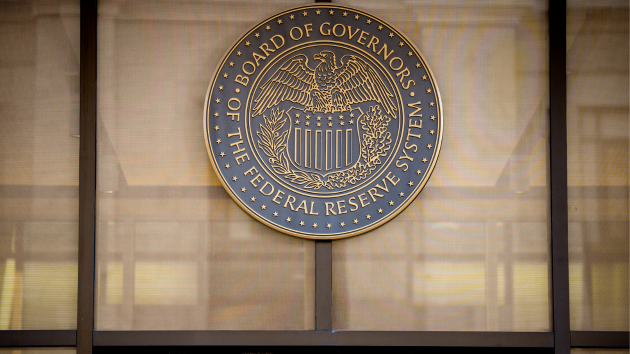What does the Fed interest rate cut mean for mortgages and homebuyers?
Written by ABC Audio ALL RIGHTS RESERVED on September 19, 2024
(NEW YORK) — The Federal Reserve delivered a jumbo-sized rate cut this week in a move widely viewed as a declaration of victory over inflation and a signal of relief for borrowers.
Few areas of the economy welcomed the news more than the nation’s sluggish housing market, where high mortgage rates have largely shut out homebuyers.
Experts who spoke to ABC News cautioned that the rate cut would not deliver an immediate drop in mortgage rates or a loosening up of the housing market.
Mortgage rates had already dropped over recent months in anticipation of the rate cut, they said. They forecasted a gradual thaw in the market as homebuyers perk up and borrowing costs slowly decline.
“This is a harbinger of good times to come, but we’re not there yet,” Susan Wachter, a professor of real estate at University of Pennsylvania’s Wharton School of Business, told ABC News.
Here’s what to know about what the Fed’s rate cut means for mortgage rates and the housing market.
What does the Fed’s rate cut mean for mortgage rates?
The interest rate cut likely will not have a significant impact on mortgage rates over the short term, experts said. That’s because mortgage rates had already moved due to an expectation of this rate decision.
The average interest rate for a 30-year fixed mortgage stands at 6.09%, according to Freddie Mac data released on Thursday.
That figure has plummeted more than a percentage point since May. The average interest rate for a 30-year mortgage has dropped even further from a peak reached last October.
“Everybody has been talking about an expected drop in the Fed Funds rate,” Jessica Lautz, deputy chief economist and vice president of research at the National Association of Realtors, told ABC News. “The mortgage market heard that loud and clear.”
Initial evidence suggesting unchanged mortgage rates can be found in the yield on a 10-year Treasury bond, experts said.
Mortgage rates closely track the yield on a 10-year Treasury bond, or the amount paid to a bondholder annually. In the aftermath of the Fed’s rate cut on Wednesday, the yield on a 10-year Treasury bond ticked slightly upward, defying the nudge downward by the central bank.
“Ten-year rates are basically pricing in the effect of interest rates coming down,” Lu Liu, a professor at the Wharton School at the University of Pennsylvania, told ABC News.
Still, experts added, mortgage rates may gradually decline over the remainder of 2024 and the duration of 2025.
The Federal Open Market Committee, a policymaking body at the Fed, on Wednesday forecasted further interest rate cuts.
By the end of 2024, interest rates will fall nearly another half of a percentage point from their current level of between 4.75% and 5%, according to FOMC projections. Interest rates will drop another percentage point over the course of 2025, the projections indicated.
If interest rates track those projections, then mortgage rates may see some decline as investors gain confidence that falling interest rates will not hit a snag, experts said.
“By the end of 2025, we can expect mortgage rates to be in the 5% range,” Wachter said.
Lautz offered a slightly less optimistic assessment, predicting mortgage rates next year in the high 5% range.
Uncertainty about the path of mortgage rates remains significant, said Liu. “It’s always a little bit of wait and see,” Liu said.
Experts agreed, however, that mortgage rates would not return to levels of between 2% and 3% enjoyed by homebuyers as recently as 2021. Those rates came in response to aggressive rate cuts at the Fed in response to COVID-19.
“That was a very unusual environment,” Lautz said. “It’s very unlikely to happen.”
What does the Fed’s rate cut mean for the housing market?
Experts expect the housing market to eventually heat up. But they do not expect the interest rate cut to deliver a sudden jolt.
The housing market remains sluggish. Existing-home sales declined 2.5% in August compared to the previous month, according to a report released by the National Association of Realtors on Thursday. The slowdown took place despite a significant decline in mortgage rates over that period.
The housing market will loosen up as low mortgage rates trickle through to homebuyers, and as those consumers proceed through the monthslong process of purchasing a home, experts said. The lower mortgage rates will also entice prospective buyers who previously balked at higher borrowing costs, they added.
Still, the current drop in mortgage rates may not rekindle the housing market, experts said, citing a phenomenon known as the “lock-in effect.”
While mortgage rates have fallen, they remain well above the rates enjoyed by most current homeowners, who may be reluctant to put their homes on the market and risk a much higher rate on their next mortgage.
In turn, the market could continue to suffer from a lack of supply, making options limited and prices sticky. Over the coming months, however, the housing market could loosen up, experts said.
“Now with rates coming down, we may gradually see some people willing to give up lower rates, move and sell their houses,” Liu said. “Hopefully there will be a little more supply on the market, but prices aren’t likely to come down all that much.”
Lautz agreed, predicting better days ahead. “It’s a slow burn,” she said. “We should see a change in activity and more buyers able to afford the market.”
Copyright © 2024, ABC Audio. All rights reserved.







